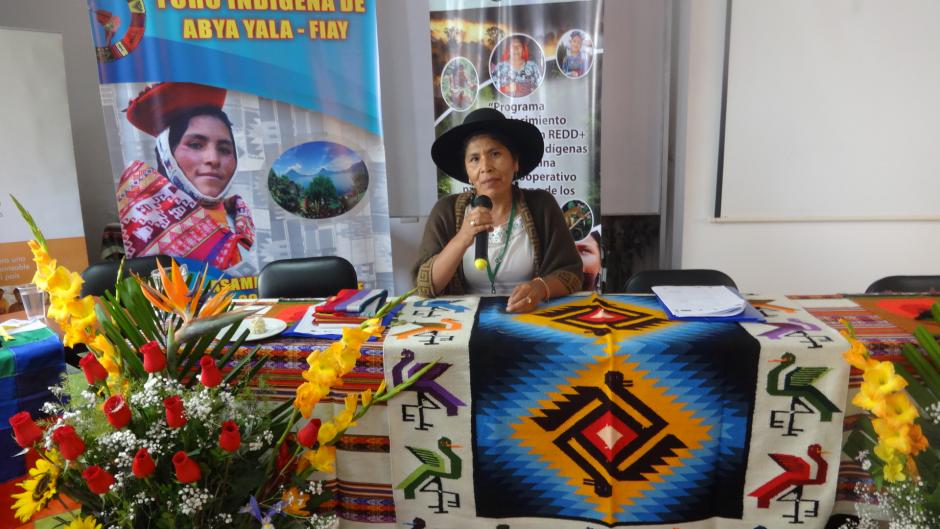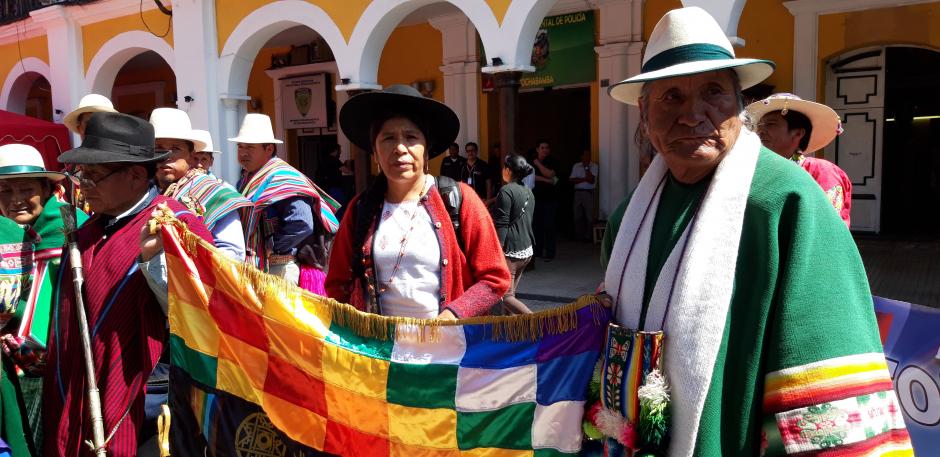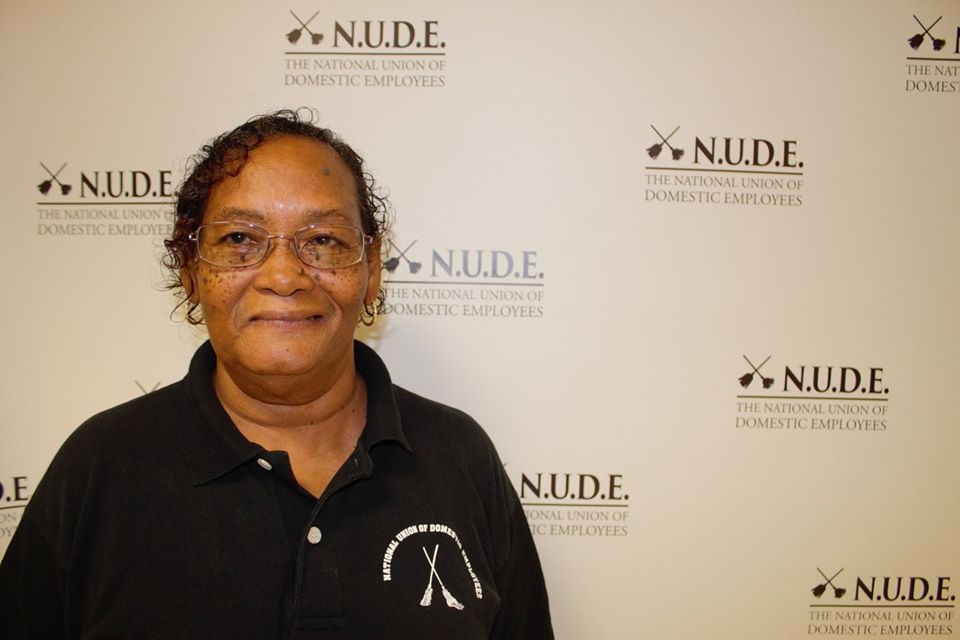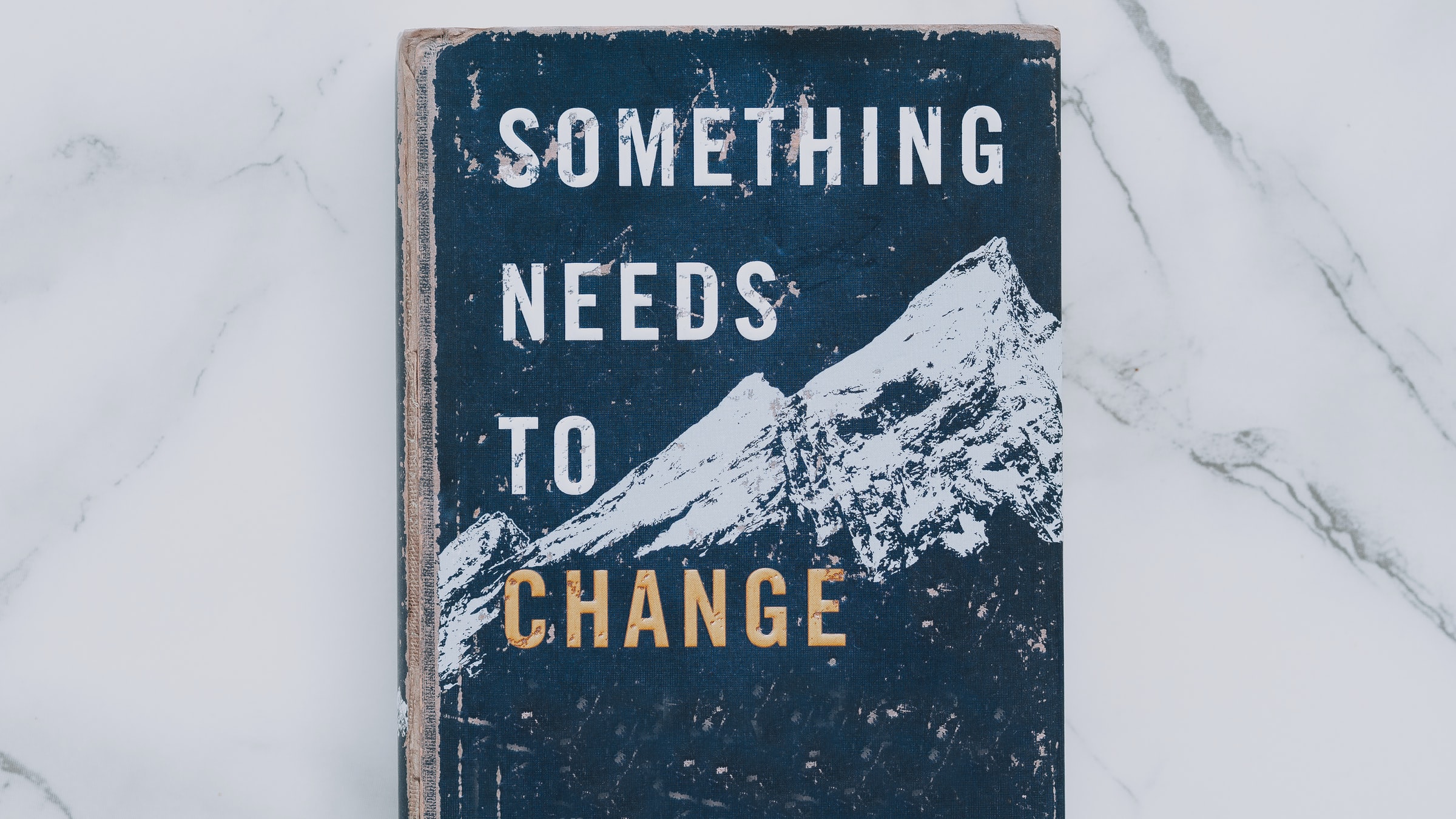Describe your experience and current work using parallel reporting.
In Bolivia we felt that the government wasn’t listening to our demands and discriminated against us for being indigenous women. The government has undertaken many measures that are damaging to indigenous communities. We developed parallel reports and presented them to the Committee for the Elimination of All Forms of Discrimination against Women (CEDAW) as well as for the Universal Periodic Review (UPR).
Our reports are based upon a collection of cases in which we prioritized compliance with the requirement of free, prior and informed consent of indigenous people (especially the effective participation of women in these processes, and the consultation in our local languages), access to justice by indigenous women in relation to land and natural resources, the right to education with an intercultural perspective, and data generation with an intersectional focus. We worked transparently with the communities throughout the entire process: from the collection of cases and the structuring of the report, to its presentation to international bodies and the recommendations’ implementation.
Please share one or two successful experiences with parallel reporting.
We’ve been building agendas since 2003 and we’ve developed a process known as “indigenous diplomacy” which is a training process to understand how we can bring what’s happening in our communities to international spaces. Some people with experience in indigenous diplomacy began to explain to us what different organizations do, how we could use this and what advantages we could gain to advance our struggles.
In 2014, Bolivia was going to be evaluated for the first time in the Universal Periodic Examination (UPE), and it was also going to be reviewed by CEDAW. Indigenous women in our organization focused on preparing a parallel report for CEDAW. We defined our priorities, and after identifying the key issues, we began prioritizing the most iconic cases that would substantiate our report. We held meetings in the highlands (Andes) and lowlands (Amazon) with local women. We also decided to prioritize some topics that were very important to us:
- Effective realization of free, prior and informed consent consultations, with the implementation of mechanisms to guarantee women’s wide, informed and effective participation, since we were not being included in the consultation lists and had no participation at all before this point.
- Consultations in our indigenous languages and not only in Spanish.
- Access to justice in relation to land and natural resources, where women usually face more obstacles.
- Preservation of traditional knowledge and realization of the right to education of indigenous women (intercultural education in local languages), in such a way that our own languages and knowledge are preserved.
- Integration by the State of an intersectional approach and disaggregation of its statistical reports by gender, ethnic identity and other aspects that allow us to better understand the situation of women.
Based on this list of prioritized issues, we began doing research. We designed an interview format and started reaching out to communities who wanted to participate. We saw that there were not many existing elements that we could use as evidence because the government publishes official figures which are not often aligned with reality, especially since the information is not disaggregated for indigenous women. We decided to collect testimonials, and we documented our own experiences as indigenous women leaders. We also made alliances in seeking support to translate into English what we wanted to express and present to CEDAW, and to make contacts in Geneva that would help ensure that we could be present during Bolivia’s review.



